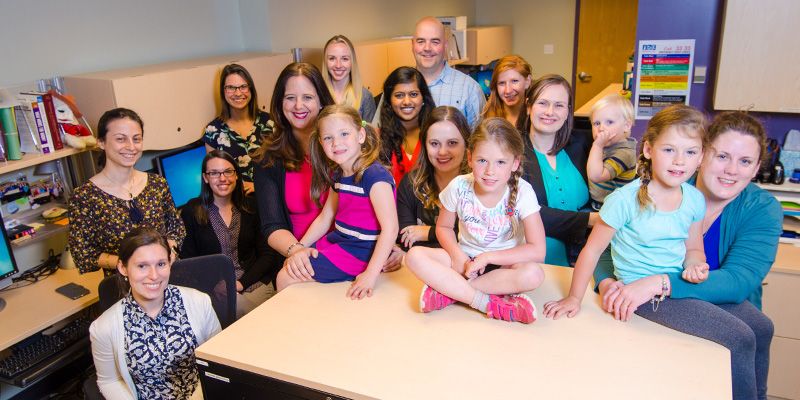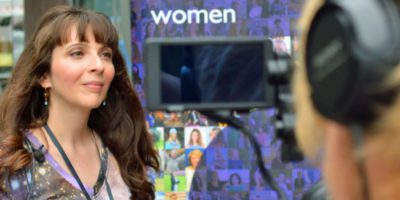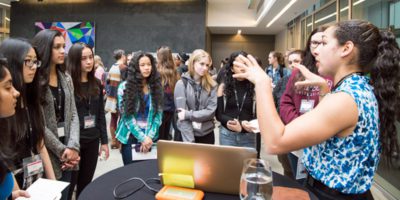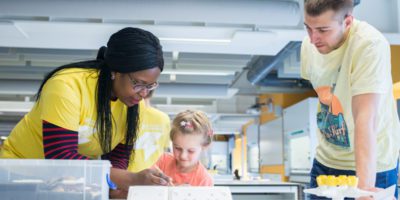Dr. Christine Chambers is a professor of paediatrics, psychology and neuroscience at Dalhousie University and the IWK Health Centre in Halifax, Nova Scotia, Canada. She is taking part in her first Soapbox Science Halifax event. Her research examines developmental, psychological, and social influences on children’s pain with a focus on knowledge translation, patient engagement and social media.
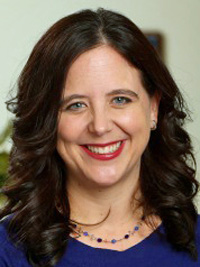
Christine is taking part in the Soapbox Science Halifax, which takes place on 16th June 2018 between 10am and 1pm at 1209 Marginal Rd, Halifax, Nova Scotia. The title of her talk is: “Making a difference for children in pain”
Hooked on making a difference
After reading a book about a child psychologist when I was 12 years old, I was hooked and so at a young age, I knew that I wanted to dedicate my career to science and helping children. This led me to complete an undergraduate honours degree at Dalhousie University, before heading to the University of British Columbia to study with Dr. Kenneth Craig, one of the world’s leading experts in the psychology of pain.
In 2001, I completed my Ph.D. in clinical psychology and continued my research career in the area of children’s pain management. Today, I am a clinical psychologist, Tier 1 Canada Research Chair in Children’s Pain, and a Killam Professor in the Departments of Paediatrics and Psychology & Neuroscience at Dalhousie University. I’m also proud to say I have been identified as one of Canada’s Top 10 Most Productive Women in Clinical Psychology.
Working together to tackle the problem of poorly managed pain in children
I am active as a researcher, mentor and advocate. My schedule is different every day, which is one of the things that I like most about my work. One day I am in the lab working with staff and research trainees – the next generation of scientists and clinicians, the next day I might be presenting about my researcher at an international conference, and the next day I might be invited to speak to a group of health professionals or trainees about how to use social media.
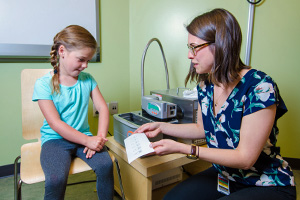
My research team consists of trainees (undergraduate students, graduate students, medical residents, and fellows) and staff (research assistants, coordinators, and associates) who work together with parents and other stakeholders to tackle the problem of poorly managed pain in children.
I also collaborate with a wide range of researchers across Canada and around the world who bring complementary expertise and experience. One of my favourite areas of collaboration is working with parents, patients, and organisations to create meaningful partnerships to make sure that our science makes a difference in the real world.
Bringing Soapbox Science to Halifax, Nova Scotia
I first heard about the Soapbox Science from Dr. Craig McCormick, who is also at Dalhousie, along with co-organiser and graduate student, Emma Finlayson-Trick, who is a passionate STEM advocate. I was immediately interested in the event as it combines several of my interests – mentorship and training, knowledge translation and reaching the public about evidence-based research, and advocacy for women in science.
“It Doesn’t Have to Hurt”
My talk is about making a difference for children in pain. As a mother of four children between the ages of seven and twelve years old, I quickly realised that the research that I had dedicated my career to wasn’t always benefitting children when they were in pain. Research can take over 17 years to find its way from the journals into practice and I wanted to make sure that my research would have a quicker uptake to help children in pain, including my own.
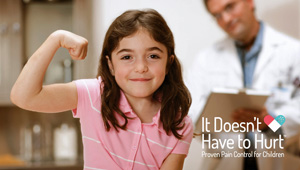
If we want to change the way we do things, we need to take some risks
I am always an advocate for stepping out of your comfort zone and trying new things – it’s not easy to do, but if we want to change the way we do things, we need to take some risks. I encourage my students to do the same.
I think Soapbox Science is an innovative way to engage the public, including the next generation, and promote and showcase women in science. I’ll be bringing my own kids to the event, and I’ve encouraged my friends to do the same.
Career advice
I’ve had great mentors who have provided lots of outstanding advice. From my partner in the It Doesn’t Have to Hurt initiative, Erica Ehm, I’ve learned: “Don’t be afraid to ask.”
Also, I’ve come to appreciate that most successful people fail the majority of the time, and that you need to be persistent. I have always liked the quote: “Stop comparing your behind-the-scenes with everyone’s highlight reel.” This is so true, we often don’t see all the hard work and failure that was behind someone else’s success. It took me a long time to realise this.
Coming up
Coming up soon, I’m looking forward to teaching at the Paediatric Pain Master Class in Minneapolis, organised by my friend and colleague Dr. Stefan Friedrichsdorf, as well as the North American Pain School (NAPS) in Montebello, Quebec, where I serve as co-director alongside director, Dr. Jeffrey Mogil. This summer, I’ll be in the lab, doing research and writing grants, and taking some time to enjoy the nice weather with my family.
http://www.soapboxscience.org/soapbox-science-2018-halifax/
https://www.linkedin.com/in/dr-christine-chambers/
https://twitter.com/DrCChambers
https://www.facebook.com/CentreforPediatricPainResearch/
https://www.instagram.com/drcchambers/

